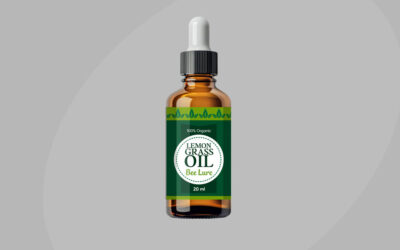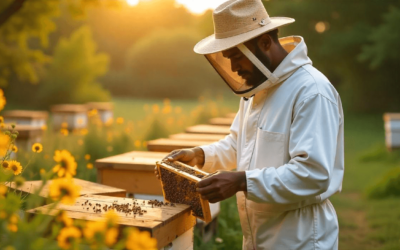The story of honey predates time. Indeed, the earliest evidence is found in ancient prehistoric rock paintings revealing men using primitive techniques to harvest honey from a wild bee colony, cleft within a high rock outcrop.
Why bees are a Fortune earner
Expert pollination agents
The critical role of bees in the environment cannot be overemphasized. Bees visit millions of plants everyday in order to gather nectar for their hives. In this process, they facilitate a very important biological process for natural habitats—pollination. But this is not limited to pollination, it is also useful in biodiversity and ultimately in the production of crops.
Bees are the primary pollinator worldwide, and this role entails covering millions of flower species, 30% of which includes important food and fruits that we directly consume daily for sustenance.
Recent research findings indicate that life as we know it, would end in a matter of days if bees suddenly became extinct. With this understanding then, much need to be done to protect this important, precious natural resource.
Increased Farming Output
On the farm, the impact of bees on farming output is immense. Bees are responsible for increased harvests per acreage since they directly pollinate the food crops that maintain entire farm ecosystems—from the food produced and consumed, to what farm animals taken in entirely.
Mr Michael Afubwa is a local Kenyan farmer from Trans Nzoia County. In his 15-acre parcel of land, he practices maize, fruit, and animal farming. Two years ago, he incorporated beekeeping in his farm after attending an apiary management course offered by Savannah Honey Limited. Michael attests to an increased yield in his maize and fruit produce.
But that is not all: bees are the vital source of honey and beeswax, which are important high economic earners for Kenyan farmers and entrepreneurs. Similarly, bees are an important source of royal jelly and propolis.
Bee Propolis: primal healer and modern medicinal wonder
Propolis is a compound derived primarily from the sap of evergreens. During honey production, when bees coalesce the sap, beeswax and other bee-discharges, they form propolis. This is a sticky, gummy, substance that is used to by bees naturally during hive making. It acts are a sealant that coats the hive preventing intrusion and access by pests.
Propolis has vast medicinal properties and its uses teem. In fact, this was discovered by ancient civilizations and has been put to effective use ever since. For instance, the Ancient Greeks used propolis extensively to deter infection spreading in wounds, and even in tumours. The earliest Egyptian civilizations used it for embalming and preservation of mummies, in Assyria, it was used as a treatment for boils, sores and blisters, owing to its anti-inflammatory properties.
In modern medicinal research, propolis has been found to contain hundreds of compounds, most of which, are polyphenols. Polyphenols contain antioxidants that combat disease and infections. In fact these compounds are found in foods rich in antioxidants such as green teas, some fruits and vegetables.
The wonders of Bee Venom
Bee venom is produced by female worker bees, and is made directly from bee sting. Bee venom boasts of medicinal, cosmetic, anti-inflammatory and is vastly used in apitherapy, an unconventional, substitute medical therapy that used bee products for healing and treatment of several ailments.
It takes an average of 10,000 bee stings to procure 1 gram of bee venom. This is thus harvested by use of a steel mesh that allows the sting to be harvested, without endangering the stinger, which would otherwise kill the bee.
Huge Economic Benefits
At the time of writing this, one gram of bee venom costs US$ 400 in the international market, making it essentially more costly than gold!
Propolis ranges between US$ 30 – US$70 per kilogram. Royal Jelly on the other hand, fetches $35 to $130 per kilogram.
It subsequently makes economic sense to invest in beekeeping. Farmers are encouraged to shift from traditional beekeeping methods, and to invest in modern beekeeping hives, and to embrace advances in technology and apiary management training in order to maximize their output, and create a net beneficial outcome that benefits the environment and natural habitats where farming is practiced.




0 Comments